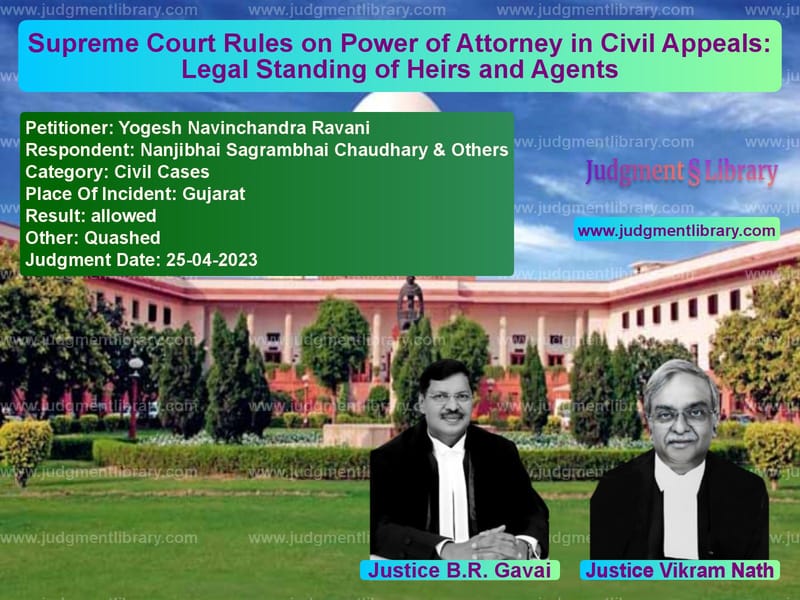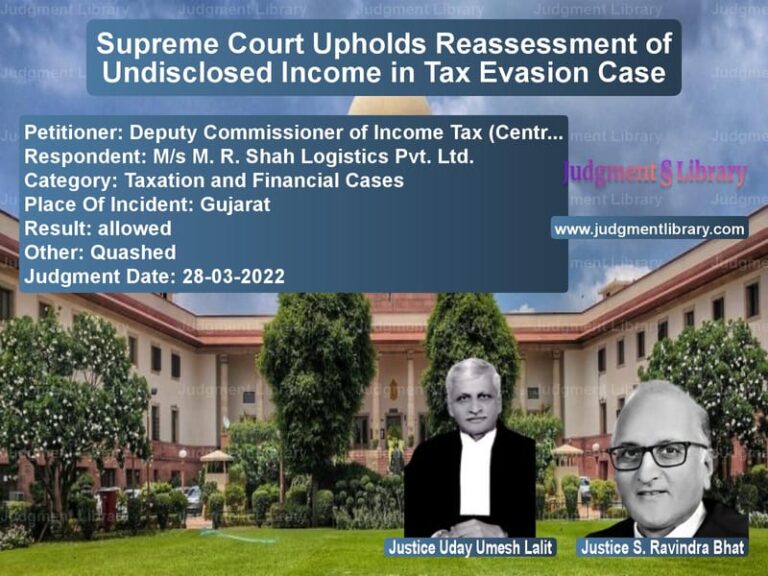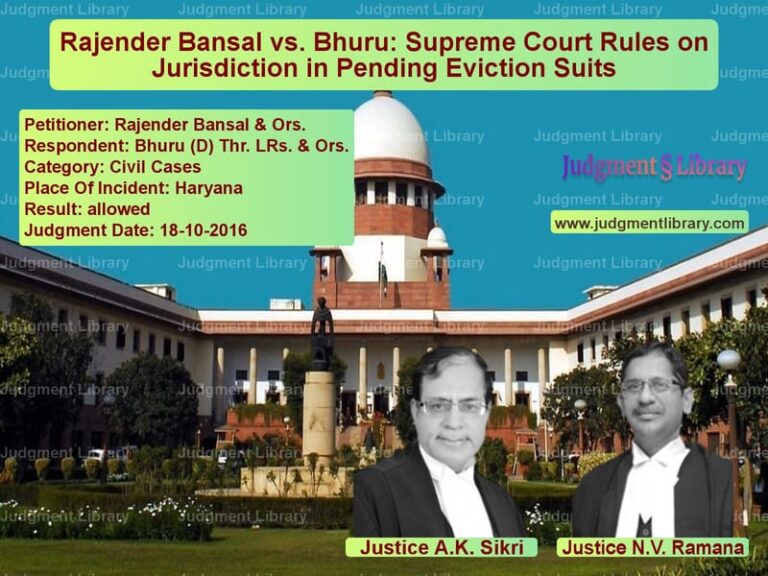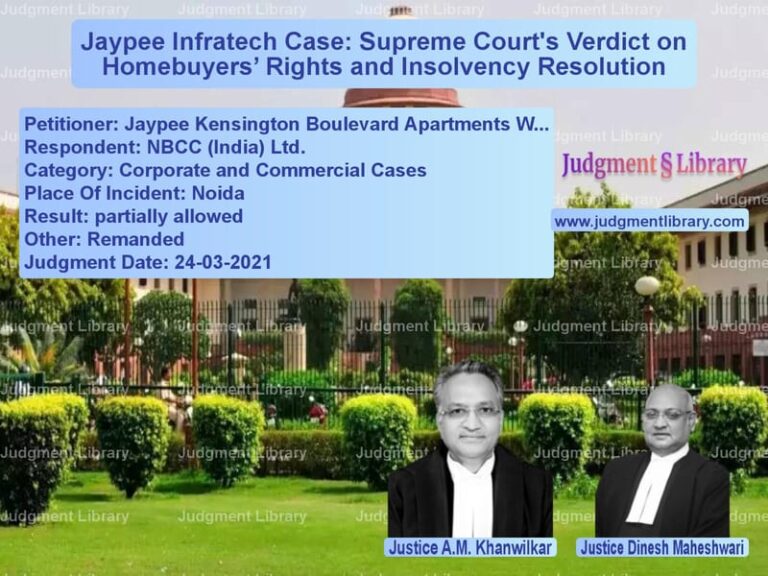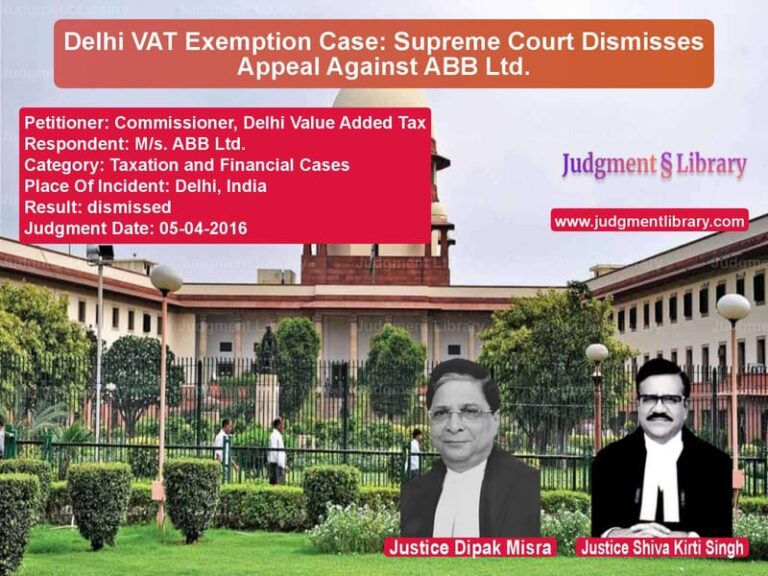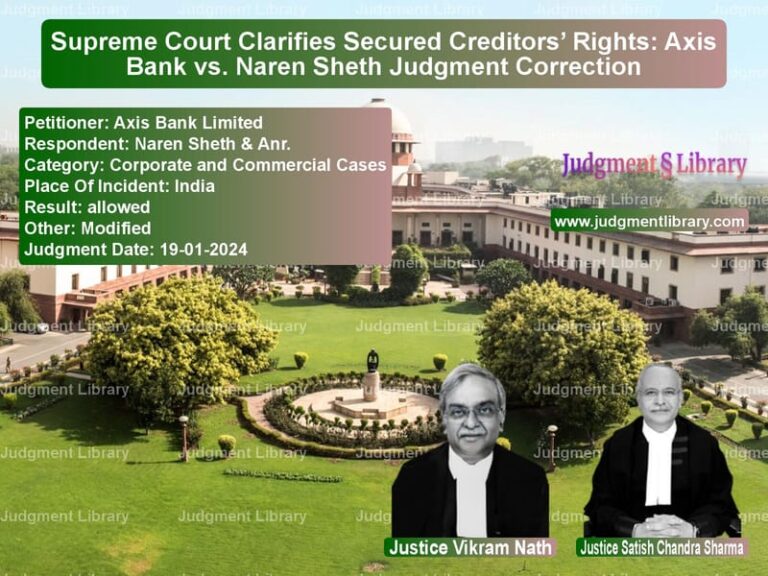Supreme Court Rules on Power of Attorney in Civil Appeals: Legal Standing of Heirs and Agents
The Supreme Court of India, in its judgment in the case of Yogesh Navinchandra Ravani v. Nanjibhai Sagrambhai Chaudhary & Others, addressed critical legal questions concerning the authority of a Power of Attorney (PoA) holder in pursuing litigation after the death of the principal. The Court clarified that once the principal passes away, the PoA ceases to have any legal effect unless explicitly reauthorized by the legal heirs. This ruling is significant in preventing the misuse of Power of Attorney in civil disputes and ensuring that only legitimate parties can pursue litigation.
Background of the Case
The case arose from a longstanding property dispute where the original plaintiff, Jesangbhai Kachrabhai Parmar, had filed a suit challenging the sale deed executed in 2000. However, Jesangbhai passed away in 2006. His legal heirs were added to the case, but a PoA holder, Vitthalbhai Maganbhai Parmar, continued pursuing the matter on their behalf. The legitimacy of this representation became a point of contention, especially when one of the legal heirs, Lalitbhai Jesangbhai Parmar, revoked the PoA.
The case went through multiple stages:
- The trial court dismissed the suit in 2008.
- A first appeal was filed and dismissed in 2015.
- A second appeal was filed in the Gujarat High Court, but it was dismissed due to procedural deficiencies.
- The appeal was later restored based on an application by the PoA holder.
- One of the legal heirs, Lalitbhai Jesangbhai Parmar, revoked the PoA and attempted to withdraw the appeal.
This sequence of events led to a legal battle over whether the PoA holder could continue representing the case despite the revocation.
Petitioner’s Arguments
The appellant, Yogesh Navinchandra Ravani, argued:
- Once Jesangbhai passed away, the PoA held by Vitthalbhai automatically became invalid.
- The legal heirs did not authorize Vitthalbhai to continue the case on their behalf.
- The second appeal had been pursued without proper authorization and should be considered void.
- Vitthalbhai misused his authority by filing applications and restoring the appeal without the consent of all legal heirs.
- The High Court wrongfully restored the second appeal and imposed costs on Lalitbhai Jesangbhai Parmar.
Respondent’s Arguments
The respondents countered:
- The second appeal was filed in good faith to protect the family’s property rights.
- The legal heirs had a right to continue the appeal.
- The High Court’s decision was based on procedural fairness.
Key Legal Issues
The Supreme Court examined:
- Does a Power of Attorney remain valid after the principal’s death?
- Can a legal proceeding continue without explicit authorization from the legal heirs?
- Were the costs imposed by the High Court justified?
Supreme Court’s Observations
The Supreme Court ruled in favor of the appellants, stating:
- “Once the principal dies, the Power of Attorney becomes invalid. The agent has no legal right to act on behalf of the deceased.”
- “Litigation must be pursued by legal heirs with proper authorization.”
- “The restoration of the second appeal was erroneous as it was filed by a person with no legal standing.”
- “The strictures and costs imposed by the High Court were unwarranted and must be set aside.”
The Court relied on the following precedents:
- Janki Vashdeo Bhojwani v. Indusind Bank (2005) 2 SCC 217 – A Power of Attorney holder cannot act in legal proceedings unless explicitly authorized.
- Suraj Lamp & Industries Pvt. Ltd. v. State of Haryana (2012) 1 SCC 656 – Clarified the legal standing of Power of Attorney holders in property transactions.
Final Judgment
The Supreme Court ruled:
“The appeals are allowed. The High Court’s order restoring the second appeal is set aside. All costs imposed on the appellants are quashed.”
Legal Impact and Significance
- Clarifies the role of Power of Attorney holders – Once the principal dies, they lose authority.
- Protects legal heirs – Ensures only valid representatives can continue litigation.
- Reduces misuse of legal procedures – Prevents unauthorized individuals from prolonging disputes.
Conclusion
The Supreme Court’s decision in Yogesh Navinchandra Ravani v. Nanjibhai Sagrambhai Chaudhary ensures that legal proceedings must be pursued by properly authorized individuals. The ruling reinforces the principle that a Power of Attorney ceases upon the death of the principal, preventing misuse of legal processes. This judgment provides clarity on procedural integrity in civil litigation.
Petitioner Name: Yogesh Navinchandra Ravani.Respondent Name: Nanjibhai Sagrambhai Chaudhary & Others.Judgment By: Justice B.R. Gavai, Justice Vikram Nath.Place Of Incident: Gujarat.Judgment Date: 25-04-2023.
Don’t miss out on the full details! Download the complete judgment in PDF format below and gain valuable insights instantly!
Download Judgment: yogesh-navinchandra-vs-nanjibhai-sagrambhai-supreme-court-of-india-judgment-dated-25-04-2023.pdf
Directly Download Judgment: Directly download this Judgment
See all petitions in Property Disputes
See all petitions in Legal Malpractice
See all petitions in Succession and Wills
See all petitions in Judgment by B R Gavai
See all petitions in Judgment by Vikram Nath
See all petitions in allowed
See all petitions in Quashed
See all petitions in supreme court of India judgments April 2023
See all petitions in 2023 judgments
See all posts in Civil Cases Category
See all allowed petitions in Civil Cases Category
See all Dismissed petitions in Civil Cases Category
See all partially allowed petitions in Civil Cases Category

